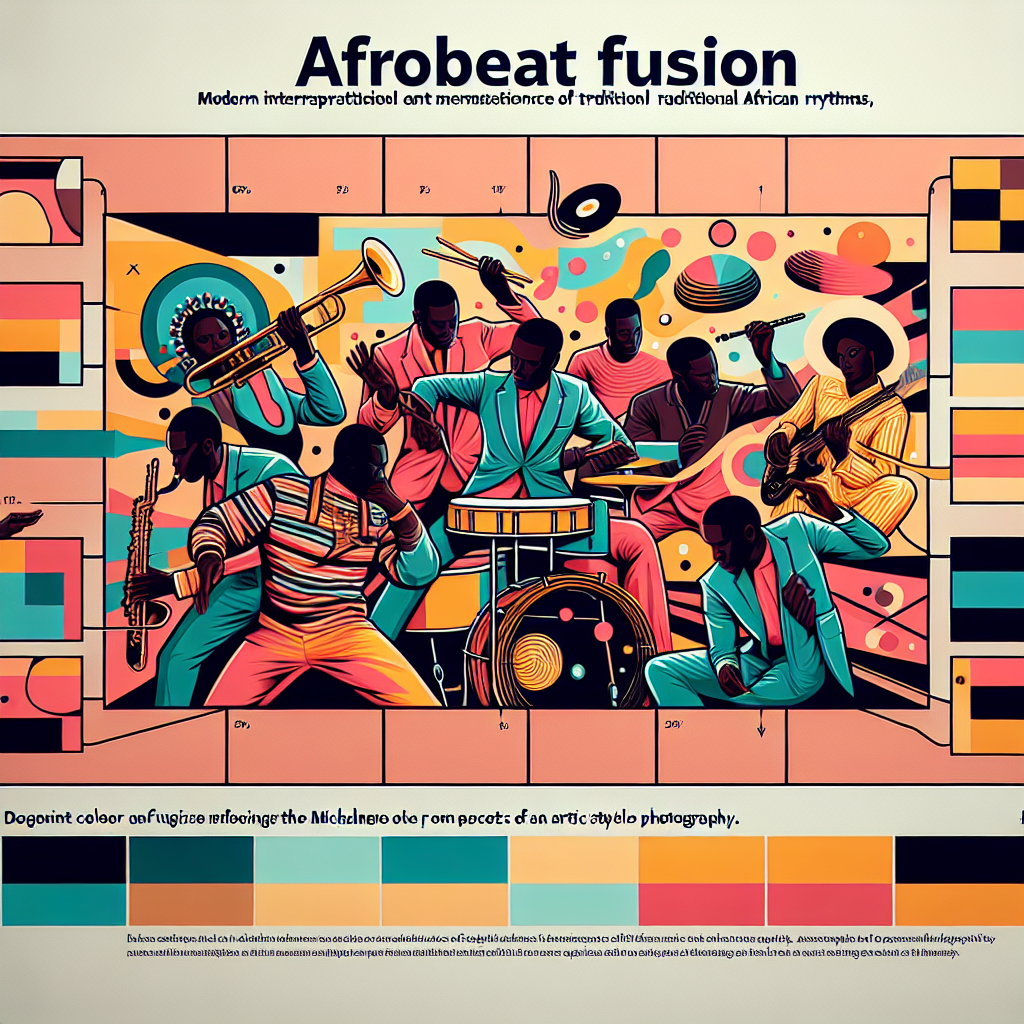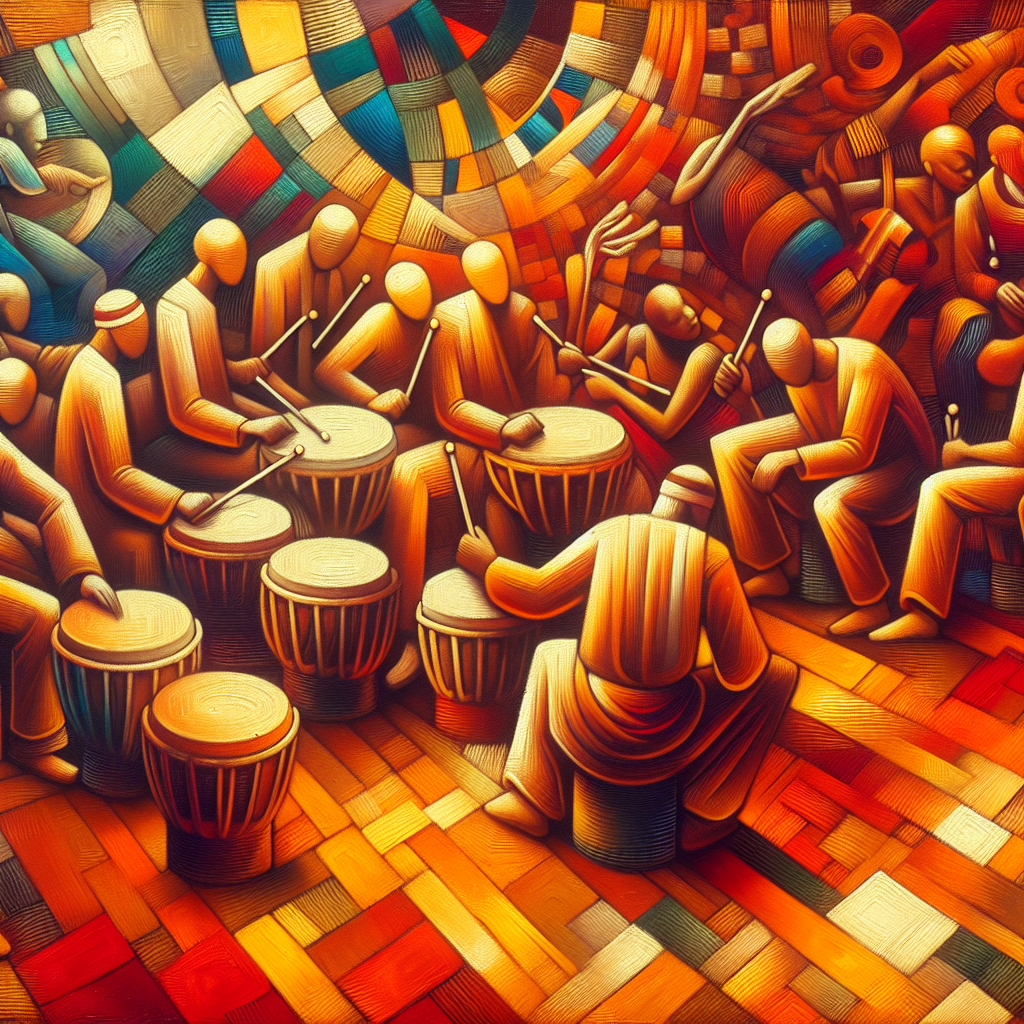-
Table of Contents
Afrobeat Fusion: Modern Takes on Traditional African Rhythms

Afrobeat fusion is a dynamic and evolving genre that blends traditional African rhythms with contemporary music styles. This article explores the modern interpretations of Afrobeat, highlighting its cultural significance and global impact.
Top 5 Tips for Understanding Afrobeat Fusion
- Explore the roots of Afrobeat to appreciate its evolution.
- Listen to a variety of artists to understand the genre’s diversity.
- Pay attention to the instrumentation and rhythm patterns.
- Understand the cultural and political messages often embedded in the music.
- Engage with the community and attend live performances for an immersive experience.
The Origins of Afrobeat
Afrobeat originated in the late 1960s, pioneered by Nigerian musician Fela Kuti. It combines elements of West African musical styles such as highlife and traditional Yoruba music with jazz, funk, and soul. The genre is characterized by its complex rhythms, extended instrumental solos, and socially conscious lyrics.
Modern Afrobeat Fusion
In recent years, Afrobeat has undergone a transformation, merging with various global music styles to create Afrobeat fusion. This modern take on the genre incorporates elements of hip-hop, electronic dance music (EDM), and reggae, among others.
Key Artists and Influences
Several artists have been instrumental in popularizing Afrobeat fusion. Burna Boy, Wizkid, and Tiwa Savage are among the leading figures who have brought Afrobeat to a global audience. Their music often features collaborations with international artists, further blending diverse musical influences.
Case Study: Burna Boy
Burna Boy’s album “African Giant” is a prime example of Afrobeat fusion. The album combines traditional African rhythms with contemporary sounds, earning critical acclaim and a Grammy nomination. His music addresses themes of African identity and social justice, resonating with audiences worldwide.
The Global Impact of Afrobeat Fusion
Afrobeat fusion has gained significant traction on the global stage, influencing mainstream music and culture. The genre’s infectious rhythms and vibrant energy have made it a staple in clubs and festivals around the world.
Statistics and Trends
According to a report by the International Federation of the Phonographic Industry (IFPI), African music genres, including Afrobeat, have seen a 15% increase in global streaming in recent years. This growth highlights the rising popularity and influence of Afrobeat fusion.
Cultural Significance
Afrobeat fusion is more than just a musical genre; it is a cultural movement that celebrates African heritage and identity. The music often addresses social and political issues, providing a platform for artists to voice their perspectives and advocate for change.
Conclusion
Afrobeat fusion represents a vibrant and evolving genre that bridges traditional African rhythms with modern music styles. Its global impact and cultural significance continue to grow, making it an essential part of the contemporary music landscape. By understanding its roots and appreciating its modern interpretations, listeners can gain a deeper appreciation for this dynamic genre.
For more information on Afrobeat and its history, you can visit Wikipedia.
“`
This article provides a comprehensive overview of Afrobeat fusion, highlighting its origins, modern interpretations, and global impact. It offers valuable insights into the genre’s cultural significance and features key artists and trends that have shaped its evolution.




